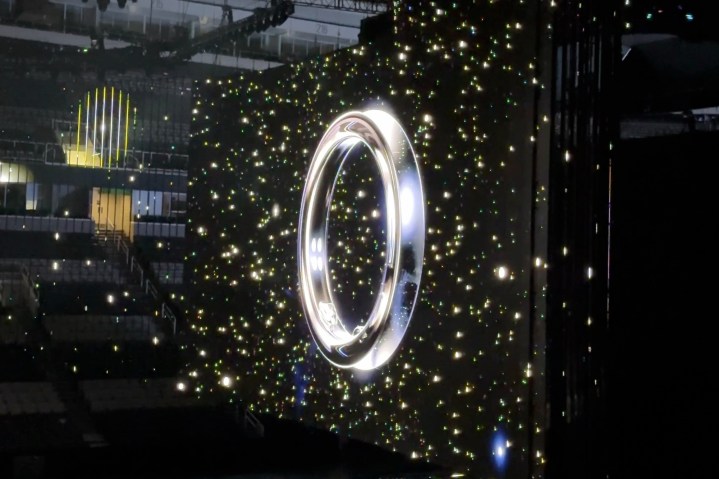
Samsung is making the natural move to a new category of wearables, one where the likes of Oura have left a mark. In the concluding minutes of its Unpacked event earlier today, Samsung gave a brief glimpse of its first smart ring.
Of course, the company is calling it the Galaxy Ring. The teaser video showcased its minimalist design profile, with a metallic exterior that slightly curves inward and an interior lined with sensors in a glass-like base. Yes, it looks a lot like the Oura Ring.
There’s nothing that stands out about the design, as it looks just like any other smart ring out there. Samsung didn’t say when exactly it plans to launch the smart ring, but it wouldn’t be a surprise to see it make an appearance at the next Unpacked event in the second half of 2024.
Here comes Samsung Galaxy ring! pic.twitter.com/wda4vzMRl2
— Sulabh Puri (@sulabhpuri) January 17, 2024
At this point, there is no official information on the Galaxy Ring available, but rumors about its development have been swirling around for a while now. Social media chatter suggests it will feature a miniaturized photoplethysmography (PPG) sensor for heart rate assessment and, possibly, ECG analysis as well.
Samsung already offers the latter on its smartwatches, including the Galaxy Watch 6, so it won’t be a surprise to see it on its maiden smartwatch. Other features that one can safely assume will appear in its repertoire include sleep tracking, activity tracking, and (maybe) some kind of remote control or music playback tricks as well.

According to The Elec, Samsung might offer the Galaxy Ring in four sizes. Given the state of the competition, it won’t be surprising to see Samsung’s smart ring start in the $300 ballpark.
And if Samsung is hoping to show off its tech and innovation acumen with some standout features, well, be prepared for an equally premium asking price.



